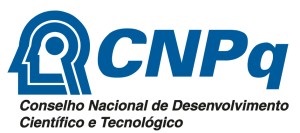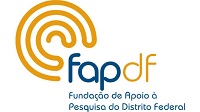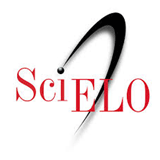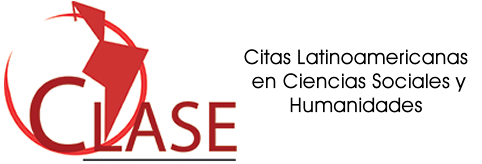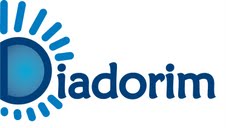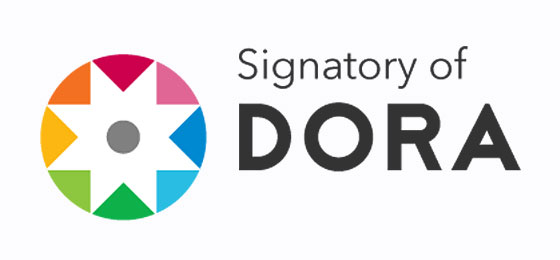Social institutions: a dialogue between sociology Chicago and pragmatist philosophy
DOI:
https://doi.org/10.1590/s0102-6992-202136020005Keywords:
Institutions, Human ecology, Pragmatism, Chicago school of sociology, Empowerment, Collective intelligenceAbstract
This paper goes back to Robert E. Park and William I. Thomas statements on the process of social disorganization /reorganization and the way this was dealt with in some of the Chicago sociology dissertations in the 1920s. Social institutions were considered to be living organisms which are born, grow and die and which exist through their transactions with their environments and through the genesis of these transactions. The basic processes of this ecology of social institutions, in the biotic and the moral orders, were grasped through the categories of competition and selection, isolation, invasion, and succession, cooperation, parasitism, and symbiosis, conflict, accommodation, and assimilation. The statistical and cartographical descriptions and analyses made it possible to account for ecological processes of functional and territorial, ethnic and racial differentiation, distribution and segregation. This first stage, in the 1920-30s, helps to understand how W. F. Whyte, H. Blumer, and E. C. Hughes studied the process of institutionalization of hospitals, firms, unions, churches, and social movement organizations in the 1940s-60s. This classical ecological perspective is enriched here through its confrontation with pragmatist philosophy – Park and Thomas were close to. Institutions, beyond their ecological grounding, are taken as experiential fields and cultural matrices, which grow up around attempts to define and master social problems. The Deweyan notions of public reason, collective intelligence, and collective learning by communities of debaters, investigators, and experimenters, come into play. Social institutions are accumulators, condensers and generators of experience, know-how and knowledge: they empower or disempower the people. Such a set of questions allows us to tackle in a fresh perspective some issues of sociology of organizations.
Downloads
References
ABBOTT, Andrew. Organizations and the Chicago School. In: The Oxford handbook of sociology and organization studies: classical foundations, p. 399-420. Oxford, UK: Oxford University Press, 2009.
______. Linked ecologies: States and universities as environment for professions. Sociological Theory, v. 23, n. 3, p. 245-274, 2005.
______. The system of professions: an essay on the division of expert labor. Chicago, IL: The University of Chicago Press, 1988.
ADDAMS, John. A function of the social settlement. Annals of the American Academy of Political and Social Science, v. 13, p. 33-55, 1899.
ANSELL, Christopher. Pragmatist democracy: evolutionary learning as public philosophy. Oxford, UK: Oxford University Press, 2011.
ARGYRIS Chris; SCHÖN Donald. Organizational learning: a theory of action perspective. Reading, MA: Addison-Wesley, 1978.
AVILES N. B. Pragmatism and social worlds analysis as a lens for studying meso-level processes in STS. In: GROSS, N.; REED, I.; WINSHIP, C. (Orgs.). The New Pragmatist Sociology: Inquiry, Agency, and Democracy. New York: Columbia University Press, 2021 (forthcoming).
BECKER, Howard S. Art worlds. Berkeley, CA: University of California Press, 1981.
BECKER, Howard S.; STRAUSS, Anselm. Careers, personality, and adult socialization. American Journal of Sociology, v. 62, n. 3, p. 253-263, 1956.
BLUMER, Herbert. Collective behavior. In: Lee, A. M. (Ed.). Principles of sociology, p. 67-121. New York: Barnes & Noble, 1951 [1939].
BOLTON, Herbert Eugene. The mission as a frontier institution in the Spanish-American colonies. The American Historical Review, v. 23, n. 1, p. 42-61, 1917.
BUCHER, Rue; STRAUSS, Anselm. Professions in process. American Journal of Sociology, v. 66, n. 4, p. 325-334, 1961.
BURGESS, Ernest W. The growth of the city: an introduction to a research project. In: PARK, R. E.; BURGESS, E.; MCKENZIE, R. D. The city. Chicago, IL: University of Chicago Press, 1925.
BURNS L. R. The Chicago School and the study of organizational-environment relations. Journal of the History of the Behavioral Sciences, v. 16, p. 342-358. 1980.
CAMPBELL, Donald T. Reforms as experiments. American Psychologist, v. 24, p. 409-429, 1969.
CEFAÏ, Daniel. Públicos, problemas públicos, arenas públicas… O que nos ensina o pragmatismo. Cadernos Cebrap, Part 1, v. 36, n. 1, p. 187-213, 2017.
______. Públicos, problemas públicos, arenas públicas… O que nos ensina o pragmatismo. Cadernos Cebrap, Part 2, v. 36, n. 2, p. 129-142, 2017.
CHISHOLM, Donald. Problem solving and institutional design. Journal of Public Administration Research and Theory, v. 5, n. 4, p. 451-491, 1995.
COOLEY, Charles Horton. Social organization: a study of the larger mind (Caps. XXVIII-XXX). New York: Charles Scribner’s Sons, 1909.
DALTON, Melville O. A study of informal organization among the managers of an industrial plant. PhD Sociology, University of Chicago, 1949.
DEWEY, John. Outlines of a critical theory of ethics, in the early works, 1882-1898, Carbondale & Edwardsville, Southern Illinois University Press, v. 3., 1969 [1891].
______. Logic: the theory of inquiry. New York: Henry Holt and Company, 1938.
______. Liberalism and social action. New York: G. P. Putnam, 1935.
______. The public and its problems. New York: Henry Holt, 1927.
______. Human nature and conduct: an introduction to social psychology. New York: Henry Holt, 1922.
______. Reconstruction in philosophy. New York: Henry Holt & Co, 1920.
DEWEY, John; TUFTS, James Hayden. Ethics. New York: Henry Holt, 1932.
DEWEY, John; MOORE, Addison W.; BROWN, Harold Chapman; MEAD, George H.; BODE, Boyd H.; STUART, Henry Waldgrave; TUFTS, James Hayden; KALLEN, Horace M. Creative intelligence: essays in the pragmatic attitude. New York: Henry Holt and Co., 1917.
EMIRBAYER, Mustafa; MISCHE, Ann. What is agency? American Journal of Sociology, v. 103, n. 4, p. 962-1023, 1998.
FOLLETT, Mary Parker. Dynamic administration: the collected papers of Mary Parker Follett. New York: Harper & Brothers Publishers, 1942.
______. Creative experience. New York: Longman, 1924.
______. The new state: group organization, the solution of popular government. New York: Longmans, Green and Co., 1918.
FREEMAN, John; HANNAN, Michael. The population ecology of organizations. American Journal of Sociology, v. 82, n. 5, p. 929-964, 1977.
FREIDSON, Eliot. Profession of medicine. New York: Harper & Row, 1970.
GEERTZ, Clifford. Local knowledge. New York: Basic Books, 1983.
GLICK, Clarence E. The Chinese migrant in Hawaii: a study in accommodation. Ph.D. Sociology, University of Chicago, 1938.
GOFFMAN, Erving. Encounters: two studies in the sociology of interaction. Indianapolis, IN: Bobbs-Merrill 1961.
______. The presentation of self in everyday life. Chicago, IL: The Free Press, 1959.
GROSS, Matthias. Collaborative experiments: Jane Addams, Hull House and experimental social work. Social Science Information, v. 48, n. 1, p. 81-95, 2009.
GUSFIELD, Joseph R. Organizational change: a study of the Woman’s Christian Temperance Union. PhD Sociology, University of Chicago, 1954.
HANNAN, Michael T.; FREEMAN John. The population ecology of organizations. American Journal of Sociology, v. 82, n. 5, p. 929-964, 1977.
HAWLEY, Amos H. Human ecology: a theory of community structure. New York: Ronald Press, 1950.
HERNES, Tor. A process theory of organization. Oxford, UK: Oxford University Press, 2014.
HIRSCHMAN, Albert O. Exit, voice, loyalty. Cambridge, MA: Harvard University Press, 1970.
HUGHES, Everett Cherrington. The growth of an institution: the Chicago Real Estate Board. Chicago, IL: The University of Chicago Press, 1928-1979.
______. Cycles, turning points, and careers. In: RIESMAN, D.; BECKER, H. (Orgs). The sociological eye: selected papers on institutions & race, p. 124-133. Chicago, IL; New York: Aldine-Atherton, 1971.
______. Going concerns: the study of American institutions. In: RIESMAN, D.; BECKER, H. (Orgs). The sociological eye: selected papers on institutions & race, p. 52-64. Chicago, IL; New York: Aldine-Atherton, 1971.
______. Disorganization and reorganization. Human Organization, v. 21, n. 2, p. 154-161, 1962.
______. French-Canada in transition. Chicago, IL: University of Chicago Press, 1943.
______. The study of institutions. Social Forces, v. 20, n. 3, p. 307-310, 1942.
______. Institutions. In: PARK, R. E. (Ed.). An outline of the principles of sociology. New York: Barnes and Nobles, 1939 (reed. A. M. Lee, New Outline, 1946).
______. Institutional office and the person. American Journal of Sociology, v. 43, p. 404-413, 1937.
______. The ecological aspects of institutions. American Sociological Review, v. 1, n. 2, p. 180-192, 1936.
JOAS, Ernst Troeltsch. The creativity of action. Chicago, IL: University of Chicago Press, 1996.
LEE, Rose Hum. The growth and decline of Chinese communities in the Rocky Mountain Region. PhD Sociology, University of Chicago, 1948.
LIND, Andrew W. An island community: ecological succession in Hawaii. Chicago, IL: University of Chicago Press, 1938.
LINDEMAN, Eduard C. Social discovery: an approach to the study of functional groups. New York: Republic Publishing Company, 1924.
LORINO, Philippe. Pragmatism and organization studies. Oxford, UK: Oxford University Press, 2018.
MCKENZIE, Roderick D. Roderick D. McKenzie on human ecology. HAWLEY, A. H. (Ed.). Chicago, IL: The University of Chicago Press, 1968.
The concept of dominance and world-organization. American Journal of Sociology, v. 33, n. 1, p. 28-42, 1927.
______. The ecological approach to the study of the human community. American Journal of Sociology, v. 30, n. 3, p. 287-301, 1924.
MEAD, George Herbert. Mind, self, and society, from the standpoint of a social behavioris. Chicago, IL: University of Chicago, 1934.
______. The philosophy of the present. London: The Open Court Company, 1932.
______. The social settlement: its basis and function. Chicago, IL: University of Chicago Record, 1907-1908.
PARK, Robert Ezra. Readings in public opinion: its formation and control. American Journal of Sociology, v. 34, n. 6, p. 1192-1194, 1929.
______. Human nature and collective behavior. American Journal of Sociology, v. 32, n. 5, p. 695-703, 1927.
______. The natural history of the newspaper. American Journal of Sociology, v. 29, n. 3, p. 273-289, 1923.
PARK, Robert Ezra; BURGESS, Ernest W. Introduction to the science of sociology. Chicago, IL: University of Chicago Press, 1921.
PARK, Robert Ezra; MILLER, Herbert Adolphus, (& THOMAS, W. I.). Old world traits transplanted, Cap. 6: “Immigrant institutions”. New York: Henry Holt, 1921.
PEIRCE, Charles Sanders. How to make our ideas clear. Popular Science Monthly, v. 12, p. 286-302, 1878.
REDFIELD, Robert. The folk culture of Yucatán. Chicago, IL: University of Chicago Press, 1941.
______. Tepoztlán, a Mexican village: a study in folk life. Chicago, IL: University of Chicago Press, 1930.
RICŒUR, Paul. Temps et récit, v. 1. Paris: Les Éditions du Seuil, 1984.
ROY, Donald. Restriction of output by machine operators in a piecework machine shop: a preliminary analysis. PhD Sociology, University of Chicago, 1952.
SHIDELER, Ernest Hugh. The chain store: a study of the ecological organization of a modern city. PhD Sociology and Anthropology, University of Chicago, 1927.
SIU, Paul. The Chinese laundryman: a study in social isolation. PhD Sociology, University of Chicago, 1953.
SPECTOR, Malcolm; KITSUSE, John. Constructing social problems. Hawthorne, NY: Aldine de Gruyter, 1977.
STRAUSS, Anselm. Continual permutations of action. New York: Aldine de Gruyter, 1993.
STRAUSS, Anselm; SCHATZMAN, Leonard; BUCHER, Rue; EHRLICH, Danuta; SABSHIN Melvin. Psychiatric ideologies and institutions. New York: Free Press, 1964.
SUMNER, William Graham. Folkways: a study of the sociological importance of usages, manners, customs, mores, and morals. Boston, MA: Ginn and Co, 1906.
THOMAS, William I. The province of social psychology. American Journal of Sociology, v. 10, p. 445-455, 1905.
THOMAS, William I.; ZNANIECKI, Florian. The Polish peasant in Europe and America, v. 1 and 2. New York: Octagon, 1919-1920.
THOMPSON, Edgar Tristram. The plantation. PhD Sociology, University of Chicago, 1932.
WEICK, Karl E. Sensemaking in organizations. London: Sage, 1995.
______. The social psychology of organizing. New York: McGraw-Hill, 1979.
Downloads
Published
How to Cite
Issue
Section
License
Copyright (c) 2021 Sociedade e Estado

This work is licensed under a Creative Commons Attribution-NonCommercial 4.0 International License.

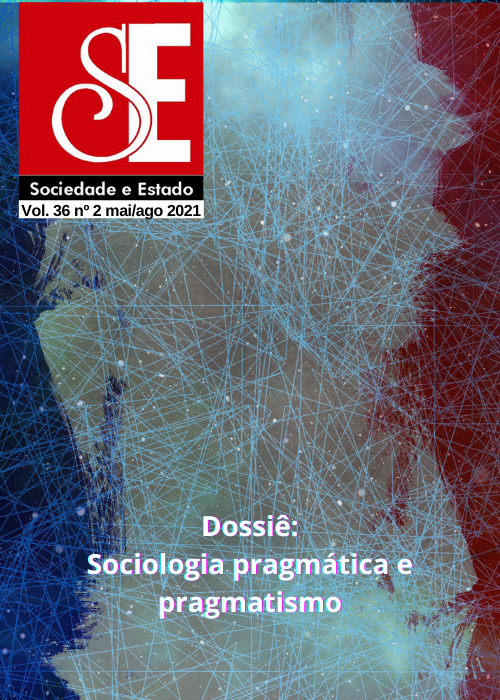


.jpg)

